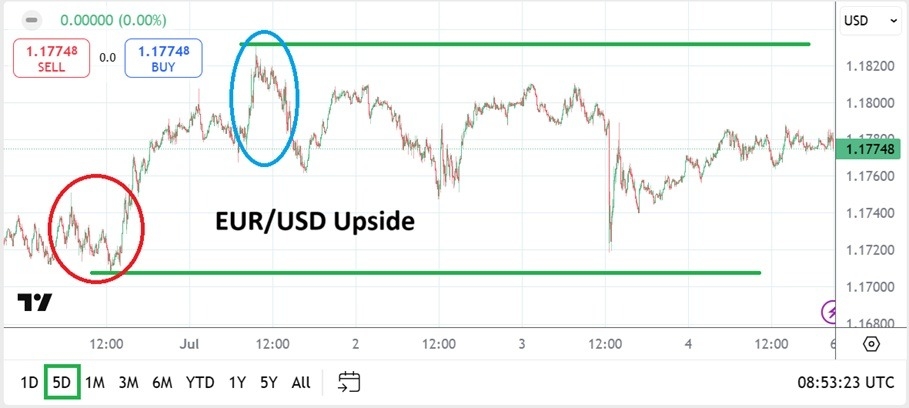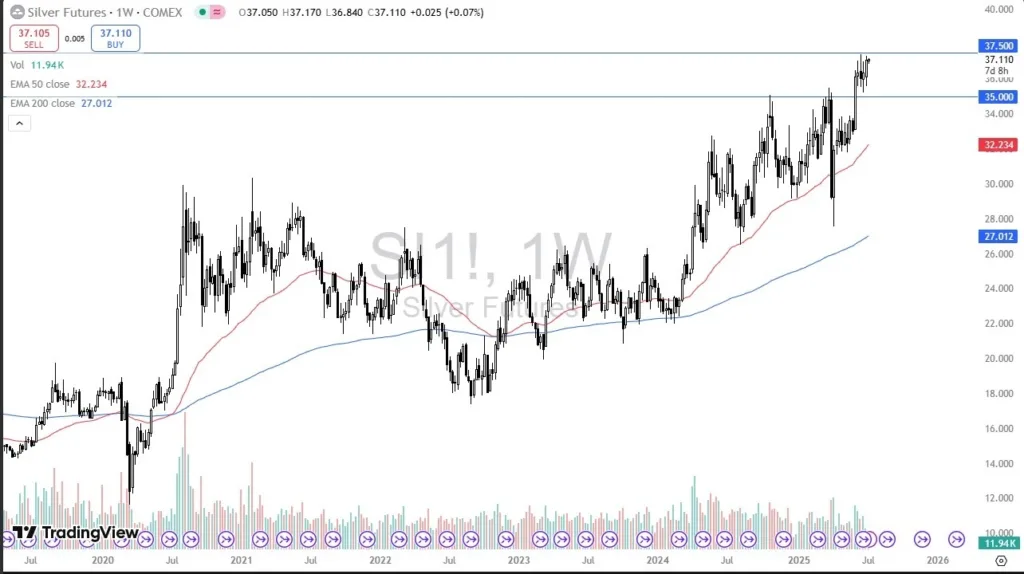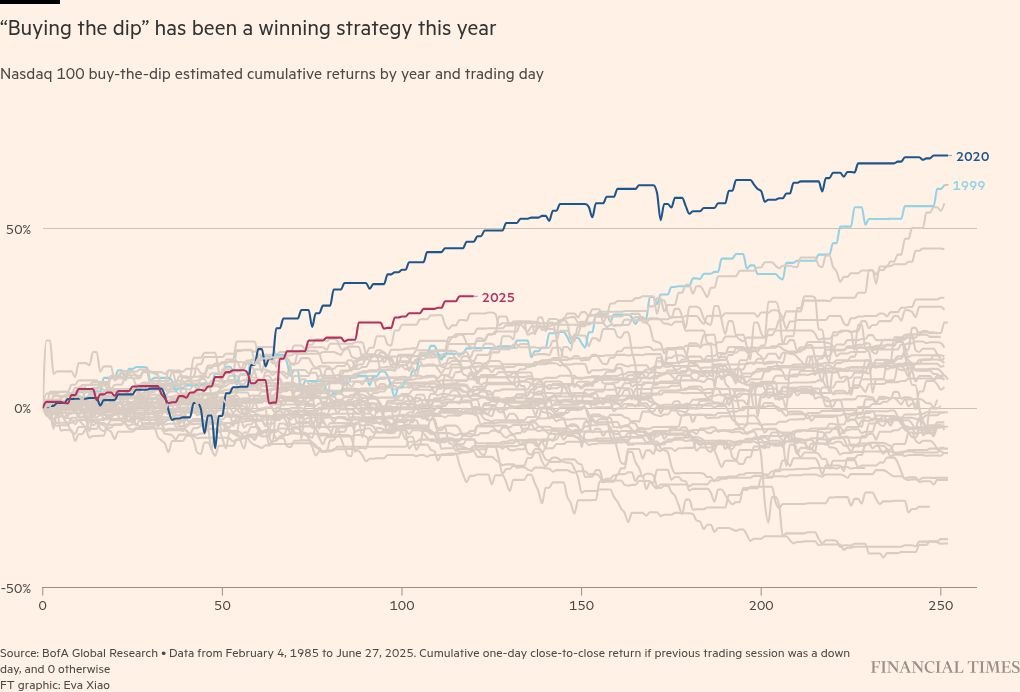Moneywise and Yahoo Finance LLC may earn commission or revenue through links in the content below.
The stock market has been on a roller coaster this year, as escalating trade tensions under President Donald Trump have rattled investor confidence. Many are worried about the fate of their finances.
But investing legend Warren Buffett has a simple test to help cut through the noise — and spot what truly counts.
In a 2018 interview with Yahoo Finance, Buffett said there are two types of things people buy: one qualifies as a real investment — the other, not so much.
Invest in Gold
The test to tell the difference is simple. If trading were banned for a period of time, would the asset still hold up?
Buffett walked through how that works with some examples.
“If you buy something — a farm, an apartment house or an interest in a business — and look to the asset itself to determine whether you’ve done something, what the farm produces, what the business earns, and so on, you don’t really care whether the stock market’s open,” Buffett said. “You look at the investment itself to deliver the return to you.”
Simply put, the kinds of assets Buffett sees as real investments produce returns on their own. They don’t need an open market — or a future buyer — to be worthwhile.
That’s not the case with more speculative assets. As Buffett explained:
“Now, if you buy something like Bitcoin or some cryptocurrency, you don’t have anything that’s producing anything. You’re just hoping the next guy pays more — and you only feel you’ll find the next guy to pay more if he thinks he’s going to find somebody that’s going to pay more.”
Buffett’s philosophy can offer peace of mind. Markets are inherently volatile. Even high-quality assets can swing wildly in price. But if your investment doesn’t depend on being sold to someone else to deliver value, you can worry less about the day-to-day ups and downs.
He summed it up clearly: “If you ban trading in farms, you could still buy farms and have a perfectly decent investment.”
Let’s take a closer look at the kinds of assets that pass Buffett’s test — and how you can get in on them.
Buffett may not be known as a real estate investor, but he often uses real estate to illustrate what a productive, income-generating asset looks like.
In 2022, Buffett stated that if you offered him “1% of all the apartment houses in the country” for $25 billion, he would “write you a check.”
Why? Because regardless of what’s happening in the broader economy, people still need a place to live and apartments can consistently produce rent money.
The best part? You don’t need to be a billionaire investor to get in the game. Crowdfunding platforms like Arrived have made it easier for average Americans to invest in rental properties without the need for a hefty down payment or the burden of property management.
With Arrived, you can invest in shares of rental homes with as little as $100, all without the hassle of mowing lawns, fixing leaky faucets or handling difficult tenants.
The process is simple: browse a curated selection of homes that have been vetted for their appreciation and income potential. Once you find a property you like, select the number of shares you’d like to purchase, and then sit back as you start receiving rental income deposits from your investment.
For accredited investors, Homeshares gives access to the $36 trillion U.S. home equity market, which has historically been the exclusive playground of institutional investors.
With a minimum investment of $25,000, investors can gain direct exposure to hundreds of owner-occupied homes in top U.S. cities through their U.S. Home Equity Fund — without the headaches of buying, owning or managing property.
With risk-adjusted target returns ranging from 14% to 17%, this approach provides an effective, hands-off way to invest in owner-occupied residential properties across regional markets.
If you’re interested in commercial real estate, there are plenty of opportunities as well.
First National Realty Partners (FNRP), for instance, allows accredited investors to diversify their portfolio through grocery-anchored commercial properties without taking on the responsibilities of being a landlord.
With a minimum investment of $50,000, investors can own a share of properties leased by national brands like Whole Foods, Kroger and Walmart, which provide essential goods to their communities. Thanks to Triple Net (NNN) leases, accredited investors are able to invest in these properties without worrying about tenant costs cutting into their potential returns.
Simply answer a few questions — including how much you would like to invest — to start browsing their full list of available properties.
Read more: Want an extra $1,300,000 when you retire? Dave Ramsey says this 7-step plan ‘works every single time’ to kill debt, get rich in America — and that ‘anyone’ can do it
Farmland is another asset Buffett likes to point to — and yes, it passes his test with flying colors.
Alongside his comment about apartments in 2022, he also stated: “If you said … for a 1% interest in all the farmland in the United States, pay our group $25 billion, I’ll write you a check this afternoon.”
Just like housing, farmland meets a basic human need. No matter what’s happening in the markets, people still need to eat. That consistent demand makes farmland a resilient, long-term asset — and often a hedge during times of economic uncertainty.
If you are interested in gaining exposure to this space, FarmTogether is an all-in-one investment platform that lets qualified investors buy stakes in U.S. farmland. The platform identifies high-potential agricultural properties and then partners with experienced local operators to manage the land effectively.
Depending on the type of stake you want, you can get a cut from both the leasing fees and crop sales, providing you with a cash income. Then, years down the line after the farm rises in value, you can benefit from appreciation of the land and profits from its sale.
When it comes to advice for everyday investors, Buffett suggests one simple thing: an S&P 500 index fund. These are investment funds that offer broad exposure to the S&P 500 — the top stocks listed on U.S. exchanges.
Such a straightforward approach gives investors instant diversification without the need for constant monitoring or active trading.
The beauty of this approach is its accessibility — anyone, regardless of wealth, can take advantage of it.
Just keep in mind that, while the S&P 500 has a healthy average annual rate of return, past gains don’t guarantee future returns. There may be rough times ahead, but long term, tracking the index can provide results.
Money doesn’t have to be complicated — sign up for the free Moneywise newsletter for actionable finance tips and news you can use. Join now.
This article provides information only and should not be construed as advice. It is provided without warranty of any kind.








